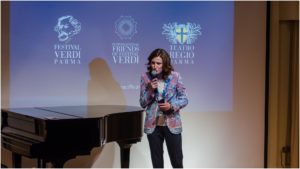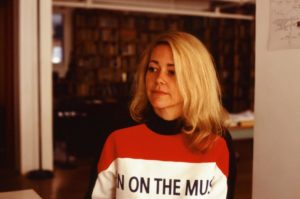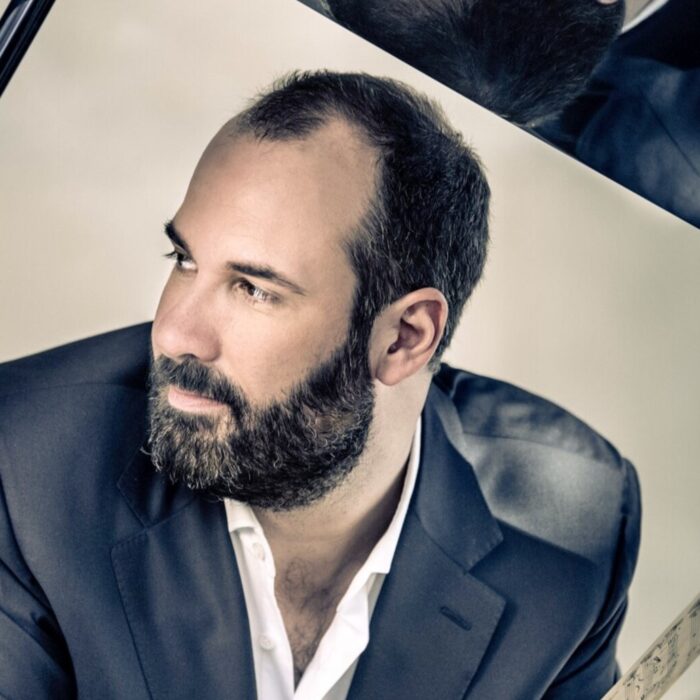
Q & A: General Director Francesca Campagna On Cultivating a New Vision for The Center of Contemporary Opera
By Jennifer PyronRecently named General Director of Center of Contemporary Opera (CCO), Francesca Campagna represents a positive shift towards greater international and personal awareness within the opera community. She is the first female in CCO’s history of 37 years to be selected for this role and also the first immigrant.
Her career’s journey spans over more than a decade and has been influenced by her involvement with international opera companies including Royal Opera House Muscat and Teatro Massimo of Palermo. She also works as an advisor at New York City Opera, as Executive Director of the International Friends of Festival Verdi, and as an independent producer with others.
OperaWire visited more with Campagna about what this new position signifies for the NYC artistic community and international trend of evolution within the opera world.
OperaWire: What excites you most about being part of CCO?
Francesca Campagna: When I was approached by CCO’s board back in November I didn’t know a lot about this company because it’s not internationally very well-known. Therefore, I wanted to learn more about the company’s mission and its past, first.
I learned that I admired artistically what the company had done, especially the fact that CCO encourages new work composed by emerging contemporary artists. Whether it be the stage for readings or workshop even, CCO was already giving the voice of these artists space to be realized and most importantly the opportunity to tell their own story. Another important part of CCO is the NYC community that it represents and therefore would provide for me as I am an immigrant to the city.
To me, music is a bridge that connects people and I feel that CCO has done very well through the seasons with maintaining this mission. I am a New Yorker now and being part of this new community empowers me to feel like a citizen of the world. I get to connect the opera world with the rest of the world and I am looking forward to having our upcoming projects represent the global community. These projects will talk about global issues and positive solutions while also upholding high standards in regards to the artistic quality. This also expands CCO’s outreach when growing its own network internationally with a wider range of advisors from different backgrounds that I’m already cultivating in my own personal life.
OW: What is the human connection that represents your highest vision for CCO?
FC: I will never forget that NYC is the city where everything is happening, the good and the bad. This city also represents all international communities and is where a lot of major protests have been amplified throughout the years. For example Stonewall, which happened fifty years ago, to right now with NYC’s Climate Strike and the U.N. General Assembly. We at CCO represent these current times and know how important it is to stay connected and involved with what is happening because this is the reality of today, for each of us.
OW: Do you feel that evolution within the opera world is vitally important now more than ever? How can you best articulate this shift?
FC: Absolutely. Of course everybody is actively doing their part now, and I respect my colleagues around the world because every artistic initiative is going somewhere. Someone in the audience of every performance is being transformed by the music and the message, no matter the age. And for me, I feel that I represent both worlds, especially internationally.
The traditional side of opera, which is where I started with my first job at Fondazione Teatro Massimo during the early 2000’s, was important to me because I was lucky enough to work with some of the most important influences in the opera world of our time. However, they represent another time of our world. So now I feel like I’m absolutely in the middle and that I am responsible for putting together the old and the new without walls. Creating a transition in the opera world that connects the music to the daily lives of everyone. Some may ask why concentrate on opera instead of pop music. And my response is, with all due respect to pop music, three minutes is not enough to express some emotions.
For example, when I was at the Met for the “Porgy and Bess” dress rehearsal, I watched the school kids that were in the balcony and was reminded based on their reactions, how opera makes me feel. The music is tied directly to the story and the emotions that we as humans feel together during this story is what connects us most to one another. And the kids during the performance had such strong reactions to what was happening on stage that it was impossible for me to ignore how as an adult my reactions are tied to their reactions. This is the articulated part of what evolution looks like, feels like. The connection between the stage and the people. The connection between the languages of us as emotional beings. The connection between the music and the emotions. I want people to talk about this and connect with these stories based on their own discoveries along the way.
OW: Is there a current organization that you model after when putting together your ideas for CCO? What does your creative process look like?
FC: What I’m currently doing is engaging in partnerships and expanding CCO’s outreach with key people at other organizations that have the same vision as we do. Starting discussions with theaters, universities, other nonprofits that want to open a dialogue, too. I’ve already received positive feedback from others and am planning on starting projects within this first year so that we will have our own complete season of outreach. But I don’t want to lose resources either, and instead want to focus our efforts as a self-sustainable company in terms of funds and time.
I’m studying a solution right now that pertains to this sustainability where CCO’s past is present and in the meantime making room for us to create new content to develop our new repertoire. We already have a huge archive based on our 37 years, so I will help further our efforts by refreshing what is our past while also bringing to life what is our future.
I also feel that the financial aspects are vital to watch in our initial steps because we are not-for-profit and the taxation system is changing here in the city. We represent activities now that support efficiency and quality of development and this will remain as my focus.
OW: What was the pivotal moment in your personal journey that brought you to where you are today?
FC: I remember an experience with one of my ex-bosses, a man, who told me that I had progressed too quickly in my career and that the next big step for me wouldn’t be allowed to happen for another ten years.
And as he said this, I could feel my body begin to shake. I could not believe that I was being restricted in this way, especially while on such a naturally rapid developing career path.
I see myself as a very diplomatic and polite person so it was hard for me to even process what he had said in that moment. I didn’t even have a response. But I could feel what his words were doing to my body and this created a chain reaction that empowered me to leave that company and create a better path of personal awareness and professional expansion for myself.
I learned from that experience that above all, my freedom is most important and it is up to me to take the necessary steps to live my best life with courage.
And I was thinking about this actually this morning, how if I did not have the courage to step out from underneath one of the biggest opera houses in Europe during that time, I would have never given myself the chance to realize who I am today.



